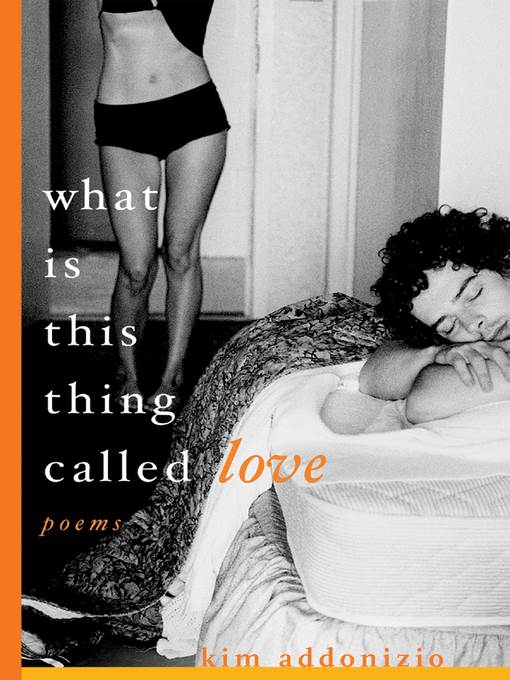
What Is This Thing Called Love
Poems
- اطلاعات
- نقد و بررسی
- دیدگاه کاربران
نقد و بررسی

December 22, 2003
Unashamedly populist, and often charming, Addonizio's fourth book of verse explores the pleasures of sex, the pains of mourning, the efforts of raising a daughter and the difficulties of minor celebrity, setting all her musings and recollections in a style two parts confessional, one part stand-up comedy, and one part talking blues. Addonizio (Tell Me
) makes reference both to famous bluesmen (Robert Johnson) and to their repetition-based forms. The first two parts of this five-part collection repeat single subjects as well: first the erotic life (a "31-year-old lover" "stands naked in my bedroom and nothing/ has harmed him yet"), and then the dead ("no real grief left/ for the man who was my father"). Exploring "the way of the world—/ the sorrowful versus the happy," the rest of Addonizio's book takes up lighter, more varied subjects, often with a defter hand: "This Poem Wants to Be a Rock and Roll Song So Bad" self-mockingly "captures the essence of today's youth," while "This Poem Is in Recovery" promises "I'm not going to get drunk and take off my clothes/ to sign my book for you." One poem adapts a form from Billy Collins, another responds (by name) to Sharon Olds: others recall the candid representations of (for example) Molly Peacock. Addonizio's in-your-face persona and her avoidance of technical difficulty should help her attract the wide audience she explicitly invites.

January 1, 2004
One could say that Addonizio (whose Tell Me was a National Book Award nominee) celebrates love as "a side trip./ It wasn't love for eternity, or any such crap," whereas Anne Sexton celebrated love as a grand passion. Otherwise, their work contains many similarities. Addonizio's most recent collection looks at love in all its guises, especially those concerned with a disappointing love affair, as did Sexton's 1969 book, Love Poems. Mourning the loss of love as well as the loss of sexual attractiveness that comes with aging, both collections use slang, eroticisms, and the details of contemporary urban life as a source of imagery and a way into the mostly free-verse poems. Both poets also share a tone that is simultaneously angry, sad, and brittle, although Addonizio is neither as sharp-edged nor as passionate as Sexton. Sexton cared about everything, perhaps too much, and her life and poems tended to boil over-tragically. These poems, however, are lukewarm and "cool" at their best. Suitable for larger public libraries.-Diane Scharper, Towson Univ., Maryland
Copyright 2003 Reed Business Information.

December 15, 2003
Addonizio's poems are like swallows of cold, grassy white wine. They go down easy and then, moments later, you feel the full weight of their impact. Her first collection, " Tell Me" (2000), was a National Book Award finalist, and any reader who enjoyed her candor and sexiness will find her writing here with even more panache and greater resonance. A smoky-voiced chanteuse, she sings the blues of lost youth and past wildness, protesting the assaults of age, the void left by a grown child and a deceased father, and the sorrows of loved ones battling disease. High heels and hangovers, horror movies and empty hotel rooms, regrets and resignation, elements all in Addonizio's articulation of lust, the quest for oblivion, and the body's unrelenting archiving of every pleasure and pain. For all their fleshiness, stiletto stylishness, and rock-and-roll swagger, Addonizio's finely crafted and irreverent poems are timeless in their inquiries into love and mortality, rife with mystery and ambivalence, and achingly eloquent in their study of the conflictful union of body and soul.(Reprinted with permission of Booklist, copyright 2003, American Library Association.)




دیدگاه کاربران